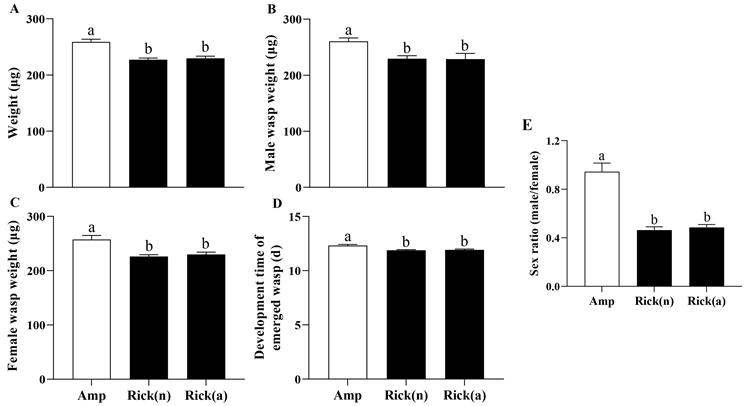Recently, Crop Disease and Insect Pest Monitoring and Management Team from our college has published a research paper titled "Facultative symbiont provides fitness benefits to the grain aphid, but not to parasitoid offspring" in the internationally renowned entomological journal Entomologia Generalis. The study found that the presence of facultative symbionts plays a crucial role in the population dynamics of the "host aphid-parasitoid" system. Zhu Huimin, an undergraduate student from our college, and Li Delu, a postgraduate student, are the co-first authors of this paper, with Associate Prof. Luo Chen and Associate Prof. Hu Zuqing as the corresponding authors.
The assistance of symbionts in helping host insects resist parasitic natural enemies poses a new challenge in the biological control of agricultural pests. In the early stages of the research, the team conducted a survey in the wheat research stations of NWAFU and found that:
1) Under natural conditions, the parasitoids had limited control over the aphids in the field;
2) The facultative symbiont Rickettsia sp. was widely infected in the Sitobion avenae in the field, but the correlation between the two was still unclear.
Given this, the team hypothesized that the presence of the facultative symbiont Rickettsia sp. could assist the host Sitobion avenae in resisting parasitoid attacks. To verify this hypothesis, the team focused on:
1) Obtaining experimental insect sources by specifically removing and enriching the target symbionts using antibiotic combinations;
2) Studying the impact of symbionts on the fitness of host aphids;
3) Evaluating the parasitism ability of symbionts on parasitoids and studying the fitness of their offspring.
The results showed that the presence of the target facultative symbiont had no significant effect on the parasitism rate and emergence rate of parasitoids. However, interestingly, the study found that the presence of the target symbiont promoted the fitness of host aphids and simultaneously affected the fitness of parasitoid offspring, such as reduced body weight and increased feminization (Figure 1), thereby indirectly regulating the population size of host aphids.

Figure 1: The impact of symbionts on the offspring of parasitoid wasps
This research was funded by the Doctoral Startup Fund of NWAFU (2452021045).
Original link:https: //www.schweizerbart.de/papers/entomologia/detail/44/103577/